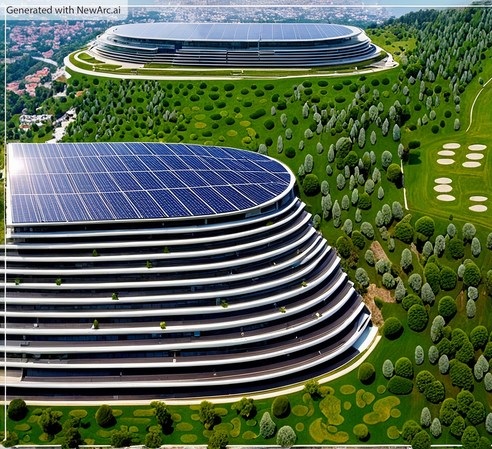Realistic Solutions for Climate Restoration
The Consolidated Climate Change Theory (CCCT) provides more than just a better explanation—it reveals a better path forward. Our strategies are designed to be immediately actionable, economically beneficial, and self-reinforcing. We don’t just reduce the harm on the land and its climate; we create a positive feedback loop of cooling, greening, and prosperity.
The Avalanche Greening & Cooling (AGC)
AGC is our flagship strategy for large-scale climate and land restoration. It is an improvement of previous tree planting methods that additionally self-propagates. Our AGC is the deliberate reversal of the destructive anthropogenic ASH.
How it Works: Strategic large-scale revegetation increases evapotranspiration, leading to more cloud formation and rainfall. This supports further vegetation growth — a virtuous feedback loop that moves with the dominant wind, reclaiming degraded land.
The Economic Engine: AGC is not a cost, but a highly profitable long-time investment. Land planted with high-value fruit trees and associated crops fund AGC expansion.

The High-Value, High-Cooling Agricultural Shift

,,Transforming agricultural land is a win-win-win for the climate, the economy, and human health.
- From Low-Yield to High-Value: Replacing pasture and grain crops with orchards and row intercropping of fruit/nut trees with beds of legumes, or grain crop rows more than triples the income per hectare while protecting soils from tilling and floods erosion.
- From Red Meat to White Meat: Transitioning diets from the new red meat diet to the ancestral white meat diet drastically reduces carbon emissions and land use while improving people health.
- Climate Impact: This system applied regionally increases evaporation, precipitation and creates cooling low thick clouds.
The Unitary Rational Building (URB)
Human settlements must be part of the solution. The URB is a design philosophy for compact, efficient, and highly livable communities that free up land.
Efficiency by Design: URBs unite residential, commercial, and recreational spaces into a single, optimized structure, largely reducing the land footprint.
The Comfortable City: Everything needed for daily life is within a short walk or personal electric vehicle ride, while dwellers use their cars outside URBs.
A Gateway to Nature: By building vertically, we preserve horizontal space. URBs can be surrounded by parks, natural forests, and productive orchards.

The Path to Implementation
Our strategy is phased and practical:
- Immediate Action (0-2 years):
- Undertake engineering feasibility studies of AGC, High-Value Agriculture, URB.
- Stop and prevent all deforestation, especially of old-growth and tropical forests, while setting up procedures for sustainable forestry.
- Forest Fire Prevention: Address and eliminate their regional and local causes including the preventive burning, cultural burning and all fires.
- Pilot Projects: Launch AGC proof-of-concept projects in strategically chosen coastal arid regions (e.g., Africa, Australia, California).
- Short-Term Transformation (2-10 years):
- Agricultural Incentives: Shift subsidies from unsustainable practices towards supporting the transition to orchard-based systems and agroforestry.
- Urban Planning: Adopt URB principles for new developments and urban regeneration projects.
- Dietary Awareness: Launch public health campaigns on the benefits of shifting energy and protein sources.
- Long-Term Restoration (10+ years):
- Global Scaling: Expand AGC projects globally wherever biogeographic conditions allow, this resulting in large carbon dioxide sequestartion.
- Reserve Networks: The land freed up by increased agricultural productivity and URBs allows vast new Natural Reserves for biodiversity conservation.
This is Not a Sacrifice for a Repair; It’s a Beneficial Opportunity for an Upgrade
The solutions of the CCCT are not about living with less. They are about living better—with cleaner air, a more stable climate, healthier food, and a more prosperous, equitable economy. This is a vision of a world of improvements.
